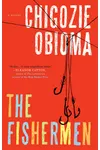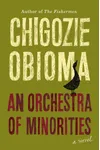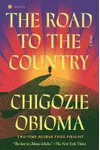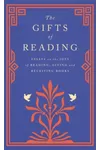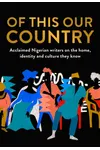Picture a Nigerian storyteller who weaves ancient folklore with modern drama, captivating readers worldwide—meet Chigozie Obioma! Born in 1986 in Akure, Nigeria, this literary sensation has earned comparisons to Chinua Achebe for his poignant novels that explore family, fate, and Nigerian society. With two Booker Prize-shortlisted works under his belt, Obioma is a voice you won’t forget.
From his childhood in a bustling family of 12 to his role as a professor at the University of Georgia, Obioma’s journey is as vibrant as his stories. His unique blend of Igbo cosmology and universal themes has made him a standout in contemporary literature.
The Making of Chigozie Obioma
Growing up in Akure, Chigozie Obioma was surrounded by stories. Raised in a large Igbo family, he soaked up Greek myths, Shakespeare, and African classics like Amos Tutuola’s The Palm-Wine Drinkard. His parents’ storytelling sparked his imagination, despite their concerns about writing as a career. After moving to Cyprus for university, Obioma faced challenges that shaped his perspective, leading to a Master of Fine Arts at the University of Michigan, where he honed his craft.
Obioma’s early love for literature and his multicultural upbringing—speaking Yoruba, Igbo, and English—gave him a unique lens. His time in Cyprus, marked by homesickness and encounters with fellow Nigerians, inspired his debut novel, a tribute to his siblings and a reflection on Nigeria’s struggles.
Chigozie Obioma’s Unforgettable Stories
Obioma’s debut, The Fishermen (2015), is a haunting tale of four brothers in 1990s Nigeria whose lives unravel after a madman’s prophecy. Set against the backdrop of political turmoil, it blends Greek tragedy with Igbo folklore, earning a Man Booker Prize shortlist spot and awards like the FT/OppenheimerFunds Emerging Voices Award. Critics hailed it as a modern classic, with The New York Times calling Obioma “the heir to Chinua Achebe.”
His second novel, An Orchestra of Minorities (2019), is a cosmic journey narrated by a poultry farmer’s chi, or spiritual guardian. Drawing on Obioma’s experiences in Cyprus, it explores love, migration, and fate, earning another Booker Prize shortlist. In 2024, The Road to the Country tackled the Nigerian Civil War, giving voice to its victims through a gripping tale of brotherhood. Obioma’s style—lyrical, mythic, and deeply human—merges African oral traditions with Western literary forms, creating stories that resonate globally.
His works, translated into over 30 languages, tackle Nigeria’s socio-political complexities while exploring universal themes like destiny and kinship. Obioma’s ability to weave Igbo cosmology into contemporary narratives sets him apart, making his novels both culturally rich and accessible.
Why Chigozie Obioma Matters
Chigozie Obioma is more than a novelist; he’s a cultural bridge, bringing Igbo traditions to a global stage. His stories challenge Western literary norms, centering African perspectives in a way that echoes Achebe’s legacy. As a professor and founder of the Oxbelly Writers Retreat, he nurtures new voices, ensuring African literature’s future shines bright. His recognition as one of Foreign Policy’s 100 Leading Global Thinkers in 2015 underscores his influence.
Obioma’s work resonates with readers seeking stories that blend the spiritual and the earthly, offering profound insights into human nature. His novels remind us that, as he says, “on a spiritual level, we are all minorities—small things,” making his voice vital in today’s world.
About Chigozie Obioma
- Born: 1986 in Akure, Nigeria
- Key Works: The Fishermen (2015), An Orchestra of Minorities (2019), The Road to the Country (2024)
- Awards: FT/OppenheimerFunds Award, NAACP Image Award, Man Booker Prize shortlists (2015, 2019)
- Current Role: Helen S. Lanier Distinguished Professor at the University of Georgia
Ready to dive into a world of myth and meaning? Snag The Fishermen or An Orchestra of Minorities and discover Chigozie Obioma’s unforgettable storytelling!
